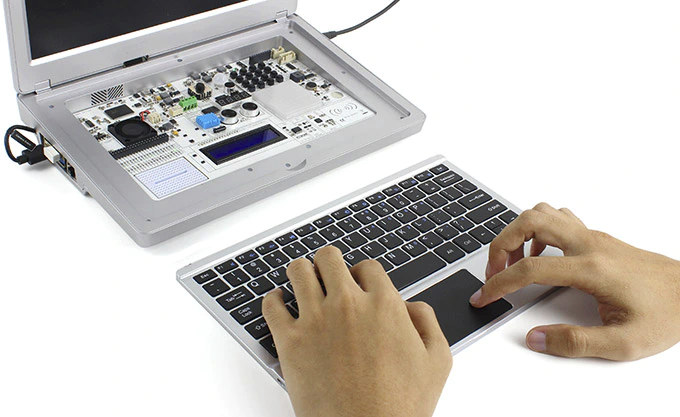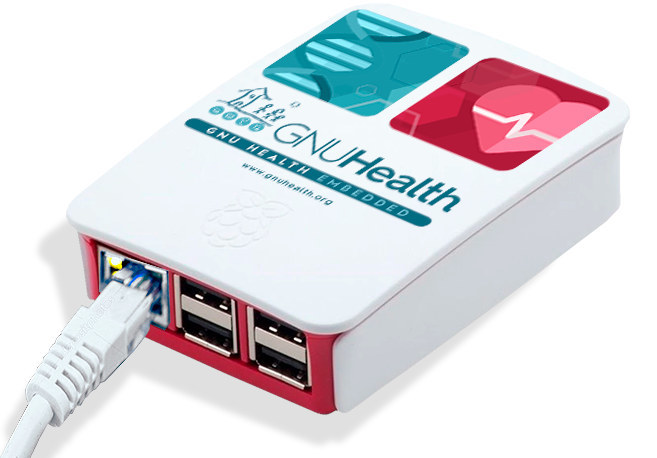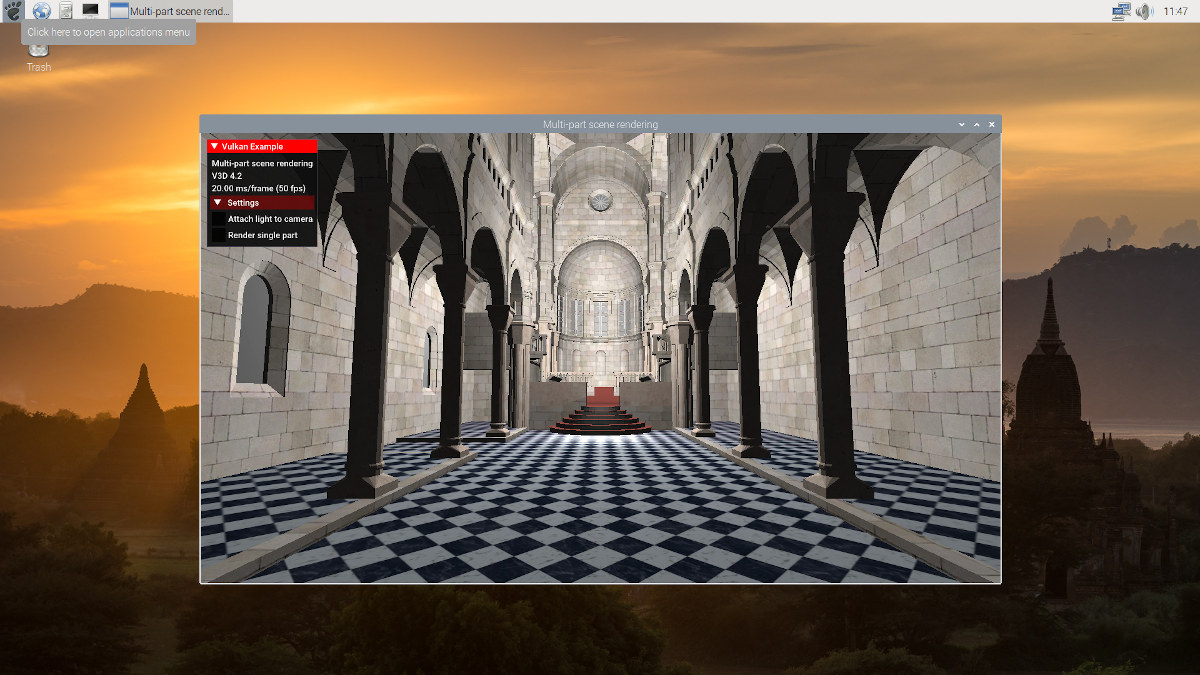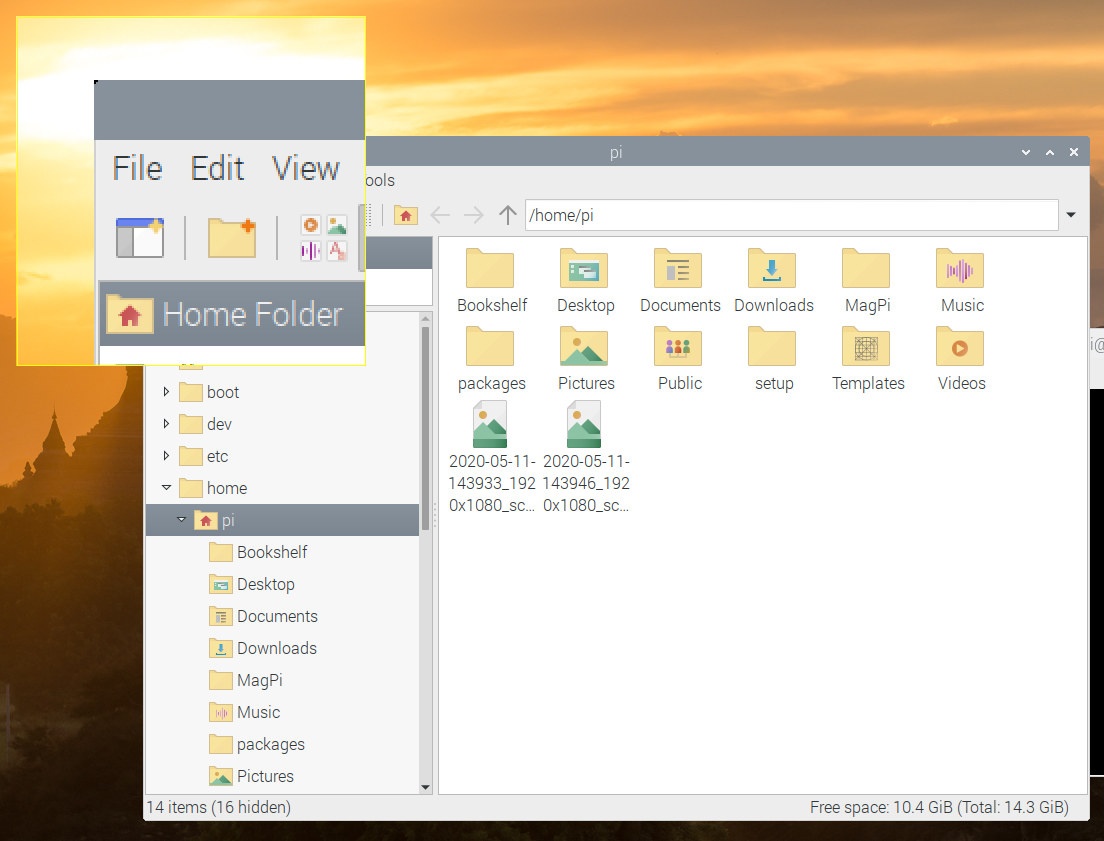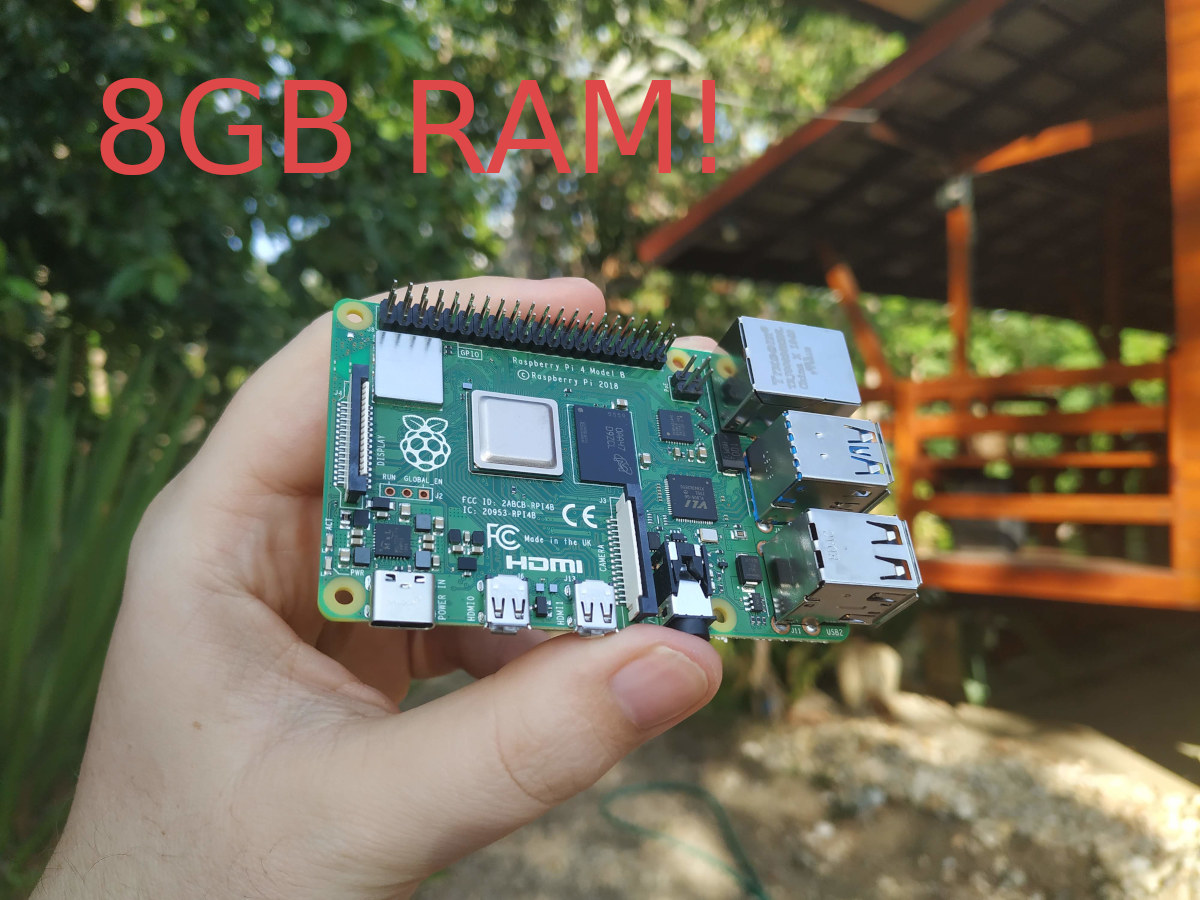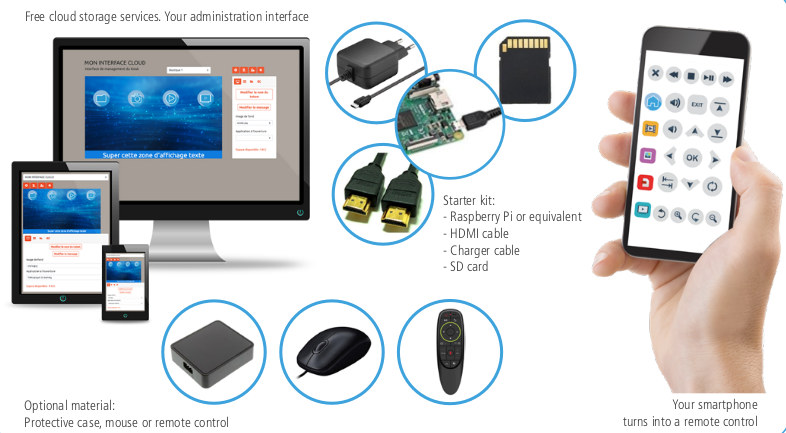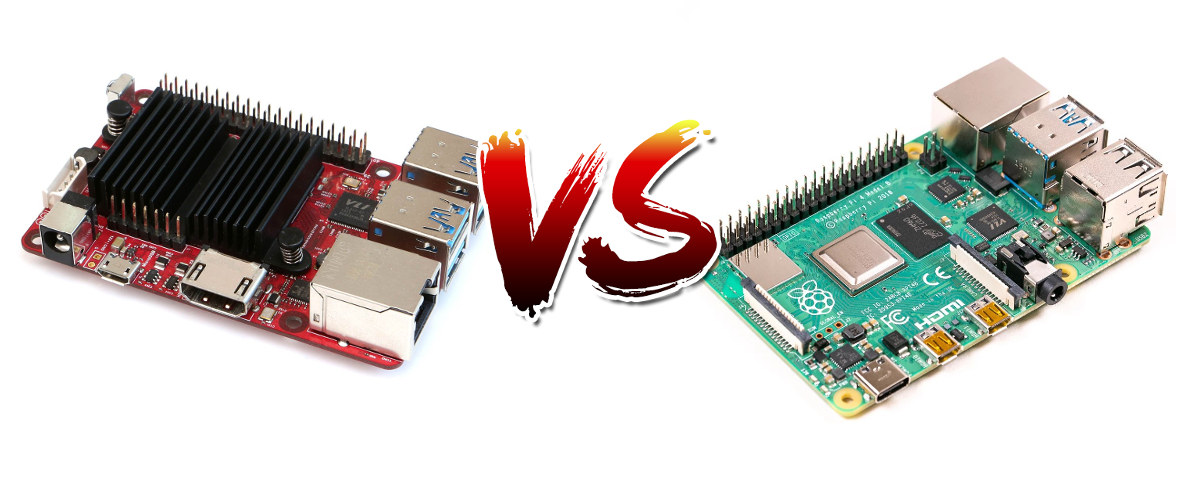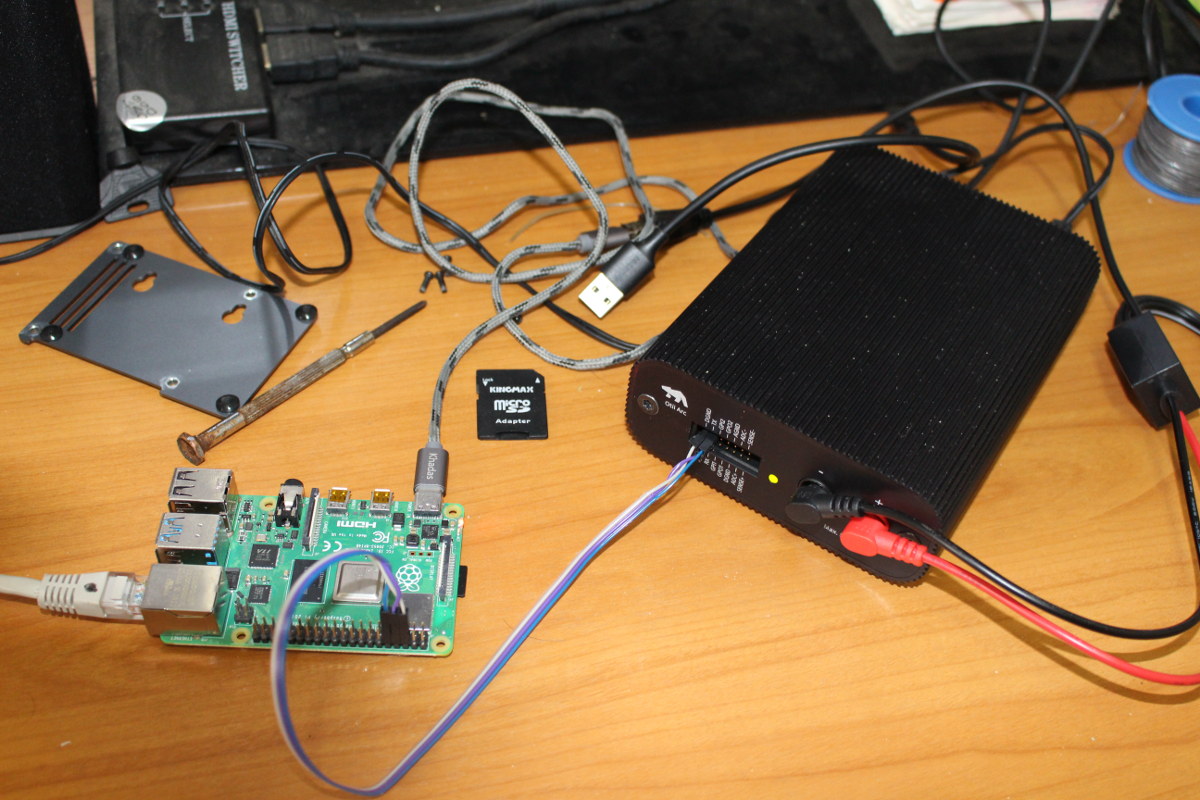CrowPi portable learning kit for Raspberry Pi 3 B+ and Pi Zero boards was launched in 2018. It comes with a 7″ display, several sensors, buttons, a breadboard, and more all packed in a small suitcase. Elecrow has now started a new crowdfunding campaign on Kickstarter to fund the second generation portable electronics learning kit: CrowPi2 which looks much more like a laptop than a suitcase found in the first model thanks to a large display, and a detachable keyboard placed on top of the electronic prototyping/learning area. It’s also more powerful thanks to the latest Raspberry Pi 4 SBC. CrowPi2 specifications: Compatible Raspberry Pi boards – Raspberry Pi 3B/B+, Raspberry Pi 4 Display – 11.6-inch 1920×1080 IPS screen Camera – 2MP camera Audio – Built-in microphone and stereo speaker; 3.5mm audio jack Keyboard – 2.4GHz detachable wireless keyboard (QWERTY only) with touchpad Sensors and Modules under the keyboard: Displays […]
GNU Health Embedded Open Source Health Platform Works on Raspberry Pi 3/4, and soon Olimex SBC’s
GNU Health (GH) is a free and open-source Health and Hospital Information System (HIS) that can manage the internal processes of a health institution, such as financial management, electronic medical records (EMR), stock & pharmacies or laboratories (LIMS). It is already used in various hospitals, health centers, and medical research facilities in various countries, most developing countries, across the world. The program would normally be installed on x86 servers running Linux or FreeBSD, but there’s also a version for Raspberry Pi 3 and 4 based on openSUSE called GNU Health Embedded, and work is being done to port the solution to Olimex OlinuXino SBC’s. Contrary to what the photo above implies, GNU Solidario does not sell the hardware pre-loaded with GNU Health Embedded, but you can download it for free from their servers, and if you want to support the project you could always make a donation. As I understand […]
Raspberry Pi 4 Vulkan Source Code Released, More Complex Vulkan Demos Supported
The Raspberry Pi Foundation announced they had started working on Vulkan support for Raspberry Pi 4 in January with the initial implementation being able to render the “hello world of graphics”, i.e. a basic triangle. Progress are been made with the Mesa 3D library been able to render more complex demos, specifically Sascha Willems Vulkan demos. That’s encouraging, but the current Vulkan implementation is still not usable to play games on Raspberry Pi, and some of Sascha’s Vulkan demos are still not working at the time of writing. Yet the list of working demos is fairly long: distancefieldfonts descriptorsets dynamicuniformbuffer gears gltfscene imgui indirectdraw occlusionquery parallaxmapping pbrbasic, pbribl, pbrtexture pushconstants scenerendering shadowmapping, shadowmappingcascade specializationconstants sphericalenvmapping stencilbuffer textoverlay texture, texture3d, texturecubemap triangle vulkanscene The other good news is that Igalia and the Raspberry Pi Foundation have now released the source code of v3dv fork of Mesa library on Freedesktop Gitlab so […]
Bye Raspbian! Long Live Raspberry Pi OS!
Last week, we reported a “new” Raspberry Pi 4 SBC with 8GB RAM launched last week, together with a beta version of “Raspbian” 64-bit needed to make full use of the extra RAM, although the 32-bit version can also address the full 8GB thanks to LPAE, but with a limitation of 3GB per process. It turns out the launch of the new board, effectively killed Raspbian. But by name only, as the recommended Raspberry Pi operating system is now called Raspberry Pi OS with three 32-bit images namely Desktop with recommended apps such as Wolfgram and Mathematica, Desktop, and Lite for headless applications, as well as the Raspberry Pi OS 64-bit beta that’s yet to be officially released, but can be downloaded from the forums and works on Raspberry Pi 3 and 4 boards. Apart from the name change, and support for 64-bit kernel and rootfs, the Raspberry Pi Foundation […]
Raspberry Pi 4 Gets 8GB RAM, Raspbian 64-bit (Beta)
The Raspberry Pi 4 Model B was launched in June 2019 with Broadcom BCM2711 Arm Cortex-A72 processor coupled with either 1, 2, or 4GB LPDDR4 RAM. But there were expectations that a Raspberry Pi 4 with 8GB RAM or an 8GB eMMC flash may be eventually launched, as some of the user guides read “Product name: Raspberry Pi 4 Model B 1 GB, 2 GB, 4 GB + 8 GB variants”. We now know the answer as the Raspberry Pi Foundation has just introduced Raspberry Pi 4 with 8GB RAM. Raspberry Pi 4 8GB specifications are the same except for the RAM capacity: SoC – Broadcom BCM2711 quad-core Cortex-A72 (ARMv8) @ 1.5GHz with VideoCore VI GPU supporting OpenGL ES 3.0 graphics System Memory – 8GB LPDDR4 Storage – MicroSD card slot Video Output & Display I/F 2x micro HDMI ports up to 4Kp60 3.5mm AV port with composite video (and […]
EasyDK Open Source Cloud Media Platform is Made for Raspberry Pi 3/4
French startup MMPhygital has developed EasyDK (Easy Digital Key) open-source, Python-based cloud media platform designed for Raspberry Pi 3 & 4 SBC’s that allows users to manage and view media content from local storage or cloud storage (2GB free) using a web management interface. The solution acts as a media center with the interface providing access to movies, video streaming, and photos, but you can also display documents such as Microsoft Office files or PDF presentations. Other features include: Dynamic display – manage a network of connected screens remotely (similar to Digital Signage solution) Remote office- Connect to a remote computer using AnyDesk plugin Add-Ons – Add your own module Cloud management – Control EasyDK remotely using the cloud platform to deploy media, launch content automatically, etc.. BLE / IP remote control – Use your smartphone as a Bluetooth or IP remote control Wireless external hard drive Secure Internet Access […]
Raspberry Pi 4 vs ODROID-C4 Features Comparison
Yesterday, Hardkernel launched ODROID-C4 Amlogic S905X3 SBC as an update to ODROID-C2 SBC launched in 2016. We’ve seen the board can compete with Raspberry Pi 4 4GB board thanks to benchmarks released by Hardkernel, but since those boards are so versatile, meaning they can be used in a variety of applications, it’s impossible to benchmark all use cases. One way to find out which board might be right for your application without going through benchmarks is to look at a list of features for each, and that’s exactly what we’ve done in this post. Let’s get straight to the Raspberry Pi 4 (4GB RAM) vs ODROID-C4 comparison table. Features/Specs Raspberry Pi 4B (4GB) ODROID-C4 Release date 24th June 2019 23rd April 2020 SoC Broadcom BCM2711 quad-core Cortex-A72 @ 1.5 GHz (overclockable to 2.0+ GHz) with NEON, FPU Amlogic S905X3 quad-core Cortex-A55 processor @ 2.0 GHz with NEON, FPU, Armv8 Crypto […]
Getting Started with Qoitech Otii Developer Tool using ESP8266 and Raspberry Pi 4 Boards
Last month, I received Qoitech Otii Arc power supply, power meter, and DAQ unit that aims at helping hardware and software engineers develop energy-efficient products. I’ve now had time to test the unit with an ESP8266 board and Raspberry Pi 4 SBC, so I’ll show how to get started and my overall experience with the hardware and program. Requirements and Initial Setup The unit takes a 9V power supply or micro USB adapter as power input, but power output is done through banana plugs. I did not have any cables with banana plugs so I bought one on eBay for about $5 shipped. This cable is really convenient with output to USB (female connector), crocodile clips, and hook clips. However, as we’ll see below it may not be suitable for all types of loads, and you may have to make your own with a higher rated cable. You’ll need to […]


